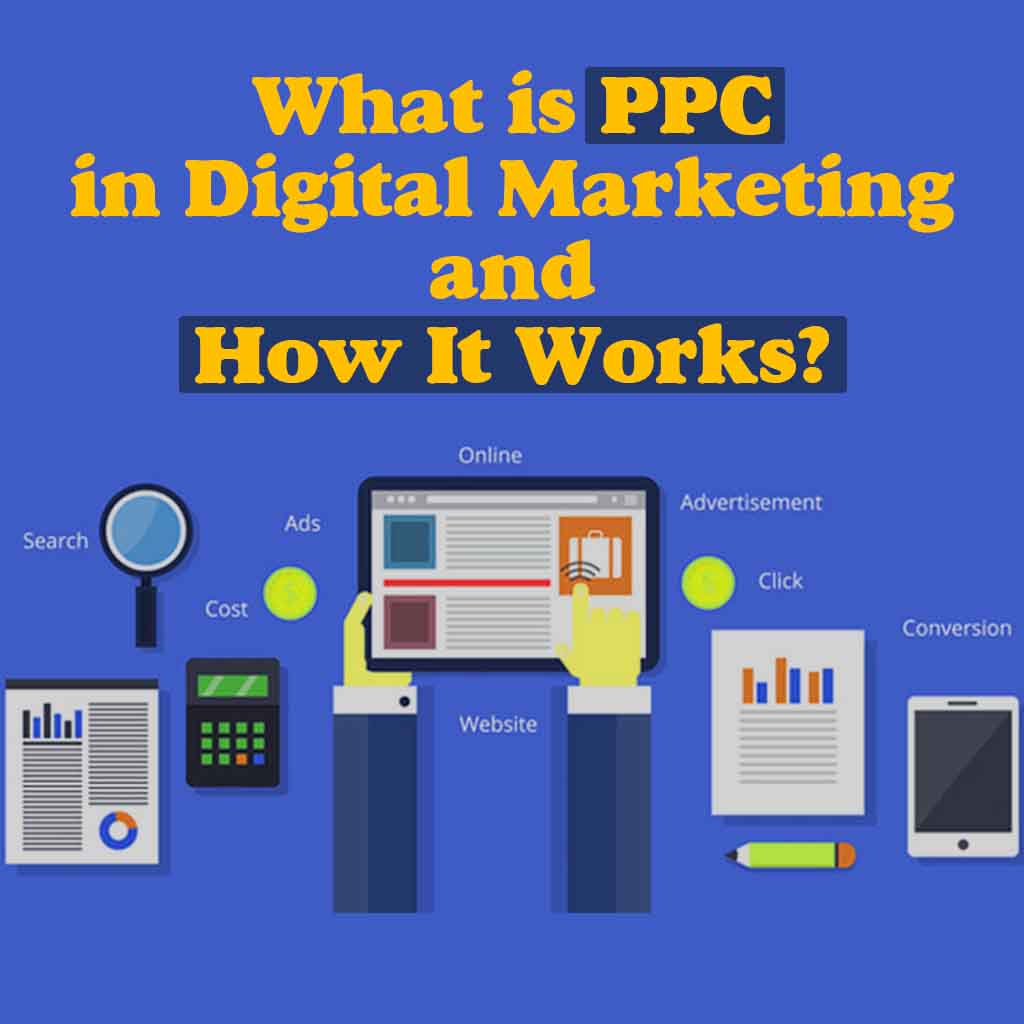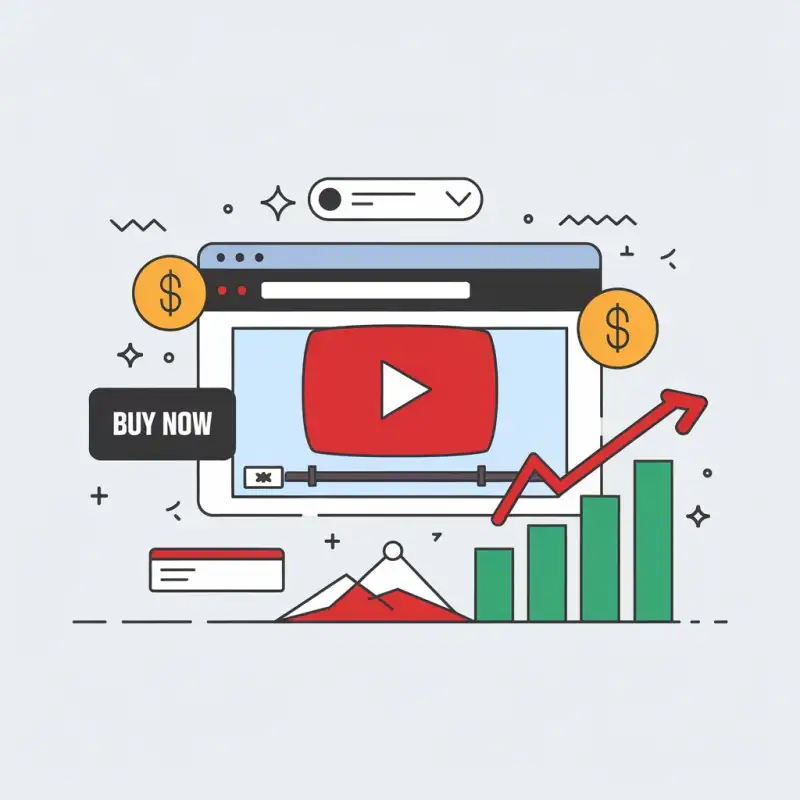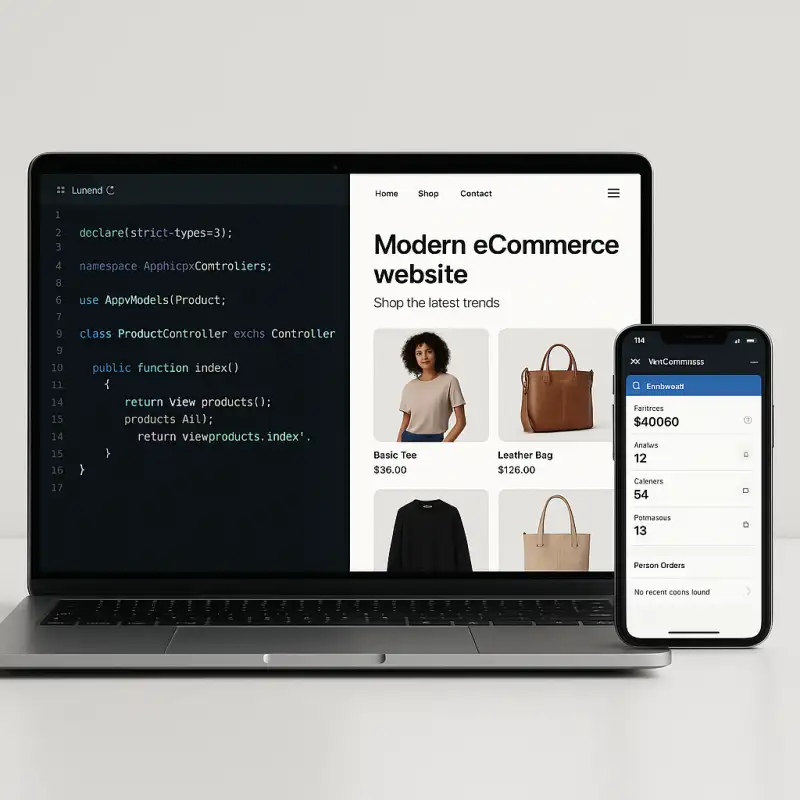What is PPC in Digital Marketing and How It Works? - NSK MultiServices

What is PPC in Digital Marketing and How It Works
In the ever-evolving landscape of digital marketing, Pay-Per-Click (PPC) advertising has emerged as a powerful and versatile tool. At its core, PPC is a method of online advertising where advertisers pay a fee each time their ad is clicked. This model allows businesses to reach their target audience effectively, generate leads, and boost conversion rates. In this comprehensive guide, we will delve deep into the world of PPC in digital marketing, exploring what it is and how it works to help you understand its immense potential in today’s competitive online ecosystem.
Understanding PPC: A Digital Marketing Game-Changer
Defining PPC
Pay-Per-Click (PPC) is a paid advertising model that allows businesses to display their ads on various digital platforms, including search engines and social media. The defining feature of PPC is that advertisers only pay when a user clicks on their ad, making it a cost-effective way to drive traffic to a website or landing page.
How Does PPC Work?
PPC operates on a bidding system. Advertisers select specific keywords or phrases relevant to their products or services. When a user enters a search query that matches these keywords, the search engine displays the advertiser’s ad. The position of the ad on the search engine results page (SERP) is determined by a combination of factors, including the bid amount, ad quality, and relevance.
The Auction Process
To understand how PPC works, imagine it as a real-time auction:
- Keyword Selection: Advertisers choose keywords that align with their target audience’s search queries. These keywords trigger the display of their ads.
- Bidding: Advertisers place bids on their selected keywords, indicating how much they are willing to pay for each click. The higher the bid, the greater the chances of securing a top ad position.
- Ad Rank: Ad rank is a crucial metric that determines the ad’s position on the SERP. It considers the bid amount, ad quality, and expected click-through rate (CTR).
- Ad Display: When a user initiates a search, the search engine conducts an instantaneous auction. The winning ad is displayed prominently on the SERP, and if a user clicks on it, the advertiser is charged a fee.
Benefits of PPC Advertising
PPC offers several advantages for businesses seeking to enhance their digital presence:
1. Immediate Visibility
PPC ads appear at the top of the SERP, ensuring that your brand is prominently displayed to users actively searching for your products or services.
2. Targeted Audience
Advertisers can choose specific keywords and demographics to reach their ideal audience, ensuring that their ads are seen by those most likely to convert.
3. Cost Control
With PPC, you have full control over your budget, allowing you to set daily or monthly spending limits. This flexibility ensures you never exceed your advertising budget.
4. Measurable Results
PPC campaigns provide detailed performance metrics, allowing you to track clicks, conversions, and ROI. This data enables data-driven decision-making and campaign optimization.
5. Brand Exposure
Even if users don’t click on your ad, the mere visibility of your brand can lead to increased recognition and trust among consumers.
Crafting an Effective PPC Campaign
Keyword Research
Before diving into PPC advertising, thorough keyword research is essential. Identify relevant keywords that resonate with your target audience and have the potential to yield high-quality traffic.
Compelling Ad Copy
Your ad copy must be persuasive and concise. Craft compelling headlines and ad descriptions that entice users to click. Highlight unique selling points and include a clear call to action (CTA).
Landing Page Optimization
Ensure that the landing page your ad directs users to is relevant and optimized for conversions. A seamless user experience on the landing page can significantly impact your campaign’s success.
Monitoring and Optimization
PPC campaigns require continuous monitoring and optimization. Regularly review performance metrics, adjust bids, and refine ad copy to maximize results.
Related Articles
- Interpreting Bounce Rate: Understanding High vs. Low Bounce Rates
- How to Conduct Market Research for Business Success?
- A Short Answer to ‘What is a Website?
- How to do Keyword Research for Google Ads
- Why We Hire Candidates for the Role of Advertising Manager
Conclusion
Pay-Per-Click (PPC) advertising is a dynamic and results-driven approach to digital marketing. By understanding the intricacies of PPC, businesses can harness its potential to increase website traffic, generate leads, and boost conversions. With the ability to target specific audiences, control budgets, and measure results, PPC remains a formidable tool in the digital marketer’s arsenal.
FAQs – Frequently Asked Questions
1. What does PPC stand for in digital marketing?
Answer: PPC stands for “Pay-Per-Click,” which is an online advertising model where advertisers pay a fee each time a user clicks on their ad.
2. How does PPC advertising work?
Answer: Advertisers bid on keywords, and when users search for those keywords, their ads are displayed. Advertisers pay when someone clicks on their ad, hence the name “Pay-Per-Click.”
3. Where do PPC ads appear?
Answer: PPC ads can appear on search engines like Google (in search results), on websites as display ads, on social media platforms like Facebook and Twitter, and in various other online spaces.
4. What is a keyword in PPC advertising?
Answer: A keyword is a word or phrase that advertisers select to target their ads to specific search queries. When users search for these keywords, relevant ads are displayed.
5. How is the cost of a PPC campaign determined?
Answer: The cost of a PPC campaign is determined by the bid amount for keywords, ad quality, and competition. Advertisers set a maximum bid they are willing to pay per click.
6. What is Quality Score in PPC advertising?
Answer: Quality Score is a metric used by search engines like Google to assess the relevance and quality of your ads, keywords, and landing pages. It affects ad rank and cost per click (CPC).
7. What are ad extensions in PPC advertising?
Answer: Ad extensions are additional pieces of information or features added to your PPC ads to provide more value and encourage user interaction. They can include site links, callouts, and location information.
8. How do I measure the success of a PPC campaign?
Answer: The success of a PPC campaign is measured using key performance indicators (KPIs) like click-through rate (CTR), conversion rate, return on ad spend (ROAS), and cost per conversion.
9. What is remarketing in PPC advertising?
Answer: Remarketing is a PPC strategy where ads are shown to users who have previously visited your website but did not convert. It aims to re-engage and convert these users.
10. Is PPC advertising suitable for all businesses?
Answer: PPC can be effective for many businesses, but its suitability depends on factors like budget, competition, and target audience. Small and large businesses alike can benefit from well-managed PPC campaigns.
About
Nandeshwar
Nandeshwar is a versatile professional skilled in digital marketing and App/Web development. With 5 years of experience and a Diploma in Computer Engineering, they excel in crafting effective marketing strategies and building dynamic websites. Specializing in content marketing, they drive results for clients while creating visually stunning websites using WordPress, Laravel, PHP and Flutter. Beyond work, they stay updated on industry trends and enjoy sharing insights.



